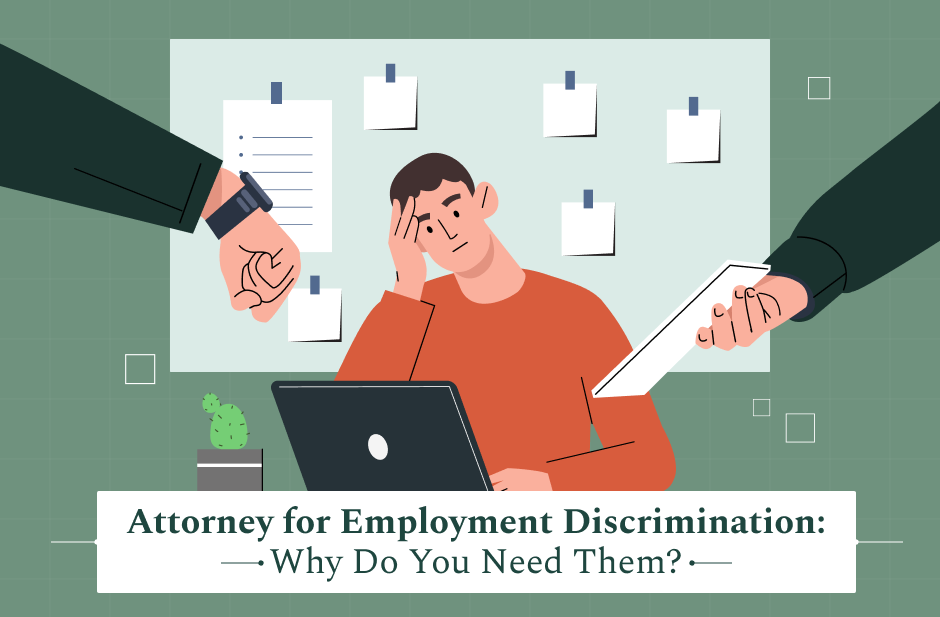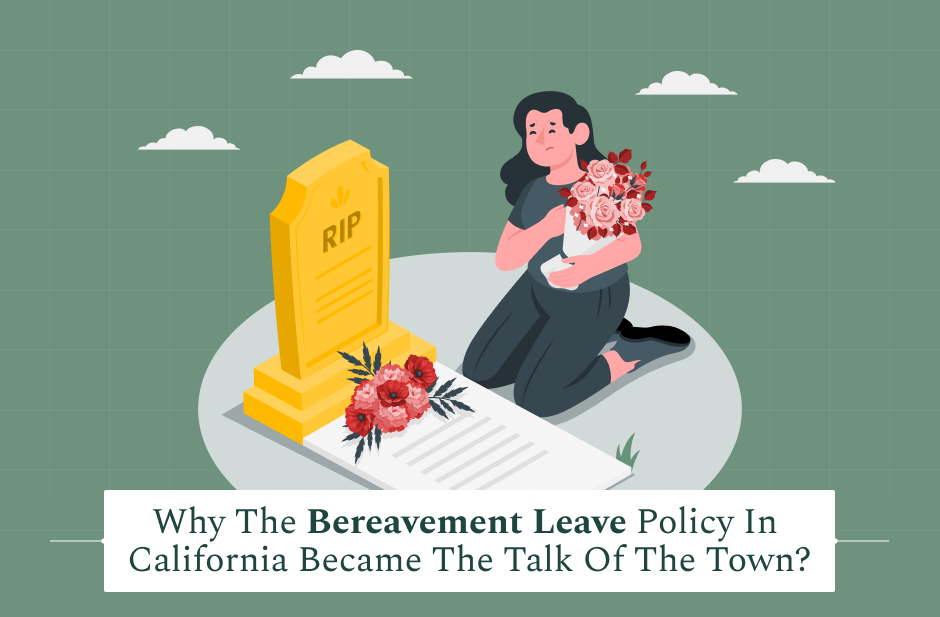If you’ve been thinking about reaching out to an attorney over employment discrimination, let me tell you—it’s not just you! This stuff happens more often than we think. And knowing your rights? It’s pretty crucial.
Employment discrimination crops up when someone is treated differently at work—like for their race, gender, religion, age, or disability.
Here’s why there are literally so many people calling lawyers more than ever:
- The EEOC got over 73,000 discrimination complaints in 2023, so yeah—it’s a big deal.
- People are more aware of their rights now, so more of us are speaking up.
- Laws like Title VII are complicated—nobody wants to go it alone. The right employment-discrimination attorney can help you file complaints, strike deals, or even go to court. So you’re not left guessing if you’ve got a case, or what to do next.
Now, what about these lawyers? When do you need an attorney for employment discrimination? And what are some of the things that you need to keep in mind when choosing them.
If these are some of the things that you need to know, keep reading till the end…
Understanding Employment Discrimination

Workplace discrimination is when you’re treated unfairly at your job—whether you’re applying or already working—because of things like race, gender, age, religion, disability, or origin.
It can happen at any stage—hiring, pay, perks, assignments, promotions, firing—you name it.
You’re protected by laws like Title VII, the ADA (Americans with Disabilities Act), and the ADEA (Age Discrimination in Employment Act). These laws also ban bullying or harassment on the job.
Types of discrimination include:
- Direct: Yeah, it’s obvious—like, “you didn’t get the job because of X.”
- Indirect: Policies that look fair but hurt certain groups.
- Harassment: When people make comments or behave in hostile ways built on those same biases.
So, what’s the effect on people? It’s not just annoying—it can slow your career, hurt your wallet, and make your mental health suffer.
And sometimes, legal help is the only way forward. If you know what counts as discrimination, you’ll spot it—and hopefully take action.
What Are The Different Types Of Employment Discrimination?
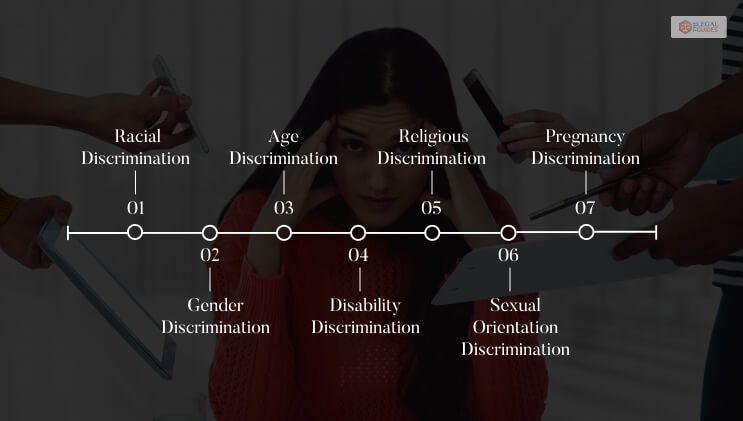
Discrimination is the matrix of forms and in each one the holes get poked into the fairness of the workplace. Recognizing them is a step towards solving the matter. Here’s the lowdown:
- Racial discrimination:
- Gender discrimination
- Age discrimination
- Disability discrimination
- Religious discrimination
- Sexual orientation or gender identity bias
- Pregnancy discrimination
What Leads To Employment Discrimination?

So what keeps this stuff happening? We’ve moved forward, right? But not fast enough.
Even though 76% of job-seekers say diversity matters, many workplaces just don’t live up to it. And you know, women, minorities, and people with disabilities still face roadblocks despite the laws in place.
Why?
- Implicit bias: Subconscious preferences that steer decisions.
- Stereotypes: Like thinking moms aren’t serious about their jobs.
- Weak policies: No clear rules or enforcement = chaos.
- Power imbalance: Sometimes bosses misuse their power.
- Resistance to change: Old habits die hard in some places.
So, now you know why!
Attorney For Employment Discrimination: Do You Need Them?

In recent years, searches like “discrimination lawyer near me” jumped about 30% since 2020. That says something.
With 73,000+ complaints in 2023, discrimination’s not disappearing anytime soon. If you think your rights were violated, an experienced attorney can be your best advocate.
Now you might think, “Why not just go to HR?”
Well, proving bias often needs serious backup—emails, witnesses, patterns. A lawyer knows what to dig for. Whether you file with the EEOC or go to court, they’ll help build your case. They’ve handled harassment, wrongful firing, unfair hiring—you name it.
Attorney For Employment Discrimination: How Can They Help You?
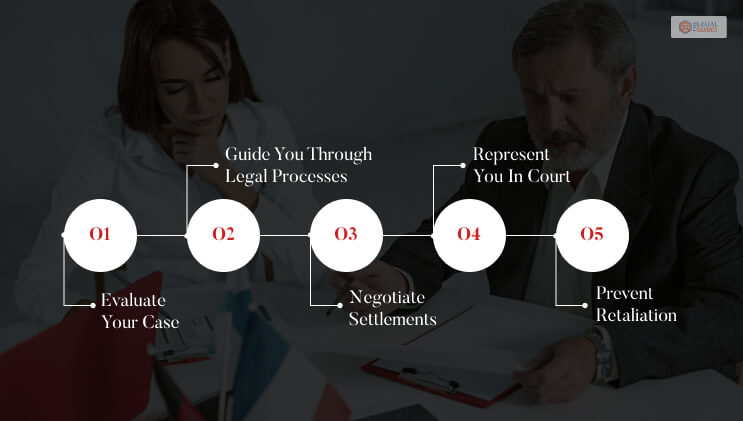
If you’ve been hit with discrimination, it’s easy to feel stuck. But a lawyer can seriously tip the scales in your favor. Here’s what they actually do:
- Case review: They look at your files, emails, review history—anything that shows unfair treatment.
- Walk you through the law: Laws like Title VII, the Equal Pay Act—they’ll handle the complicated part, like filing with EEOC or state bodies.
- Settle talks: Most cases settle quietly. Your lawyer pushes for fair pay, lost wages, maybe even to get your job back.
- Litigation support: If it goes to court, they’ll stand for you—question witnesses, build your defense.
- Stop retaliation: Boss starts punishing you after you complain? That’s illegal too. Your lawyer helps keep the pressure off you.
What Are Your Rights As An Employee?
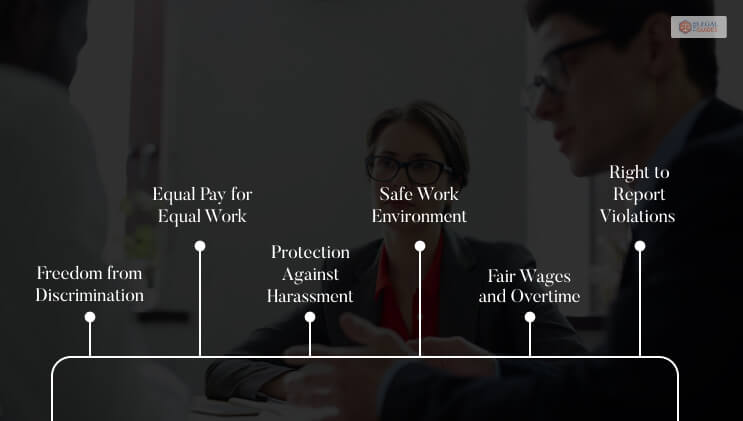
You’ve got protections, and knowing them helps you stand your ground. Here’s a quick rundown:
- No bias allowed: Title VII forbids discrimination in employment based on race, gender, religion, age, disability, or nationality.
- Equal pay: The Equal Pay Act says that workers performing the same tasks deserve equal remuneration regardless of their gender.
- Safe from harassment: Any harassing behavior including sexual harassment is prohibited by law—and you have the right to report it confidentially.
- Safe workplace: OSHA regulations require the workplace to be safe and free of hazards.
- Fair pay & overtime: FLSA stipulates your right to get at least minimum wage and receive extra for overtime hours worked.
- Right to report: You can do so anonymously with no fear of retaliation and disclose any wrongdoing to EEOC and other authorities.
What to Do When Facing Employment Discrimination?
First of all, feeling lost, scared, or afraid of the situation is quite common – but there’s a way out. Here’s a simple breakdown:
- Write it down: Keep a record: the dates, what happened, who witnessed it. A paper trail is crucial.
- Tell HR: Most companies take issues like this seriously and have some reporting procedures. Do it professionally.
- Know your rights: Get familiarized with EEOC, Title VII rules—you won’t be able to defend yourself if you don’t know what the issues are.
- Call a lawyer: If you find that HR does not help or even acts against you, getting legal support is important.
- File with EEOC: You will be given a time frame of around 180–300 days to submit a complaint. It is up to them to decide to investigate or not.
Standing up isn’t just for you—it pushes everybody toward a fairer, safer workplace.
Your Legal Guide: How To File A Workplace Discrimination Claim?
If someone at work treats you unfairly just because of who you are—like your race, gender, age, or disability—you can file a complaint.
This means telling the government what happened so they can help fix it. The group that helps is called the EEOC (Equal Employment Opportunity Commission).
Ways to File a Complaint:
| Method | What You Do |
| Online | Use the EEOC Public Portal to answer questions and upload your complaint. |
| In Person | Go to a local EEOC office—book online or just walk in. |
| By Phone | Call 1-800-669-4000. They’ll guide you through the steps. |
| By Mail | Send a signed letter with details of what happened. |
| Through State Office | Local fair employment agencies can also help you file. |
What to Include:
- Your name & contact info
- Who you’re complaining about (your employer)
- What happened and when
- Why you think it was discrimination
- Your signature
Important: You usually have 180 days to file. Sometimes, you get up to 300 days, depending on your state.
Also, you don’t need a lawyer, but you can bring one if you want!
Additional Reading:








